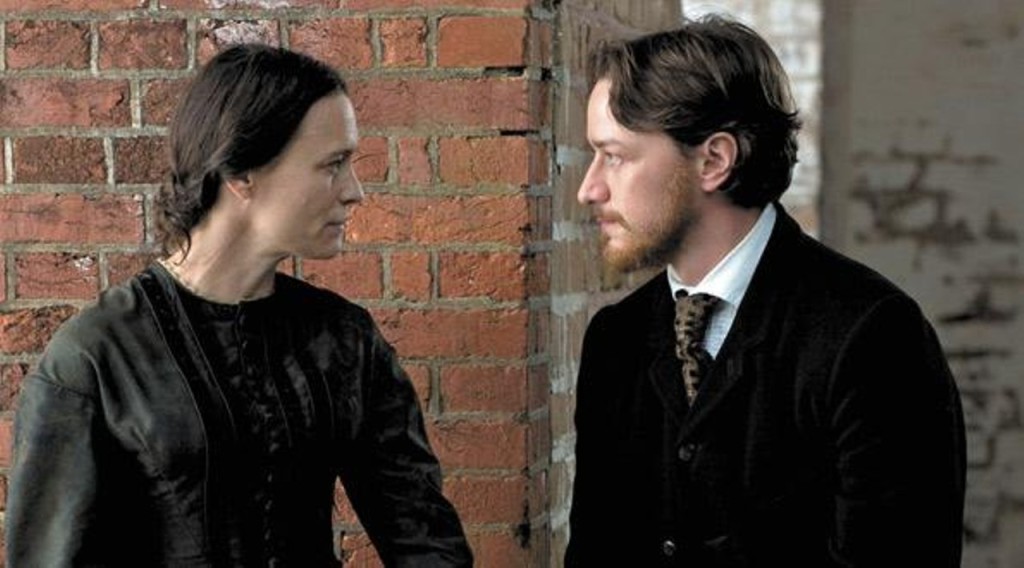A period flick with a distant charm
Period films should always be given some settling time and doesn’t immediately work because it talks about the situation and politics around that time rather than focusing an individual and their story. So unless you know a little bit of history or not inclined towards knowing it, it remains distant. ‘The Conspirator’ too felt to be in the same category. As soon as it gets revealed to be a period flick, a sense of relaxation lures into the air which gets bypassed only by time. But once we get a grip of what’s happening or rather once the film grips us. Then it makes for a compelling watch.
The film’s story was a really interesting one, something surprisingly no one has thought of. It works as a conspiracy theory too, so it would always make for a good watch. But the events happen quite fast and it jumps from one event to another with varied time. The real crux of film gets to be known only around thirty minutes after the film when Mary Surratt (Robin Wright) gets arrested and Frederick Aiken (James McAvoy) reluctantly defends him. If Frederick had been a guy who was the only person who wanted to defend Mary, then it would have been a straightforward story. But Frederick compulsively takes the job but rather than sympathizing with his client, he stays true to his job and preserves his work ethics. That’s the beauty of the film.
James McAvoy and Robin Wright were eclectic in their roles and did to perfection. In fact the whole film was about the two of them. Mary even though wrongly convicted doesn’t let the identity of his son because she knows that once it comes out, it’s fairly simple to put all the charges on him and give him a death sentence so Frederick has double trouble of saving Mary when she is not ready to give out any clues about his son. The conversation between both of them were nicely taken. There was a specific scene where she sits out and gets some sun, it actually makes us feel a breath of fresh air. Another scene where an umbrella is held over shows what a proud individual she is. She resembles Julia Roberts so much in that scene but remains her own in delivering the right performance.
A couple of good things about the film were its tone and the eventualities. The whole film has a smoky depressing tone, especially the courtroom scenes. It’s really important in a period film as to what you show. You can’t get away with a vast canvas if you’re not an auteur. Plus it’s a confined film which wants to show about the individual’s plight rather than the place. So the focus rests solely on the people rather than the environment. Yet the environment has to be right no matter what the canvas is. The director Robert Redford does it just about the correct level.
On the other hand, the film accepts eventualities. I liked the fact that Mary Surratt dies, even though the film was about her. And in post credits scene we get to know that John Surratt gets released. But it’s not really a happy feeling. It ideally should have been the other way around. If it had been the ideal way, the film would have been simple and boring. Just because of the complexities, it marked itself as an interesting film.
As a whole, it makes for an interesting story to be known, rather than an interesting watch. If someone like Oliver Stone had made the movie, I’m sure it would have been far more engrossing. I guess when it comes to ‘The Conspirator’, it’s the leads and their sincerity which makes for an interesting. But when you’re binging, you got to watch movies of all kind, everything can’t be one of a kind.

[…] Movie Review – The Conspirator […]
LikeLike